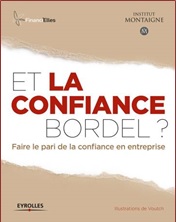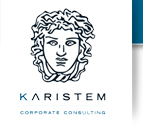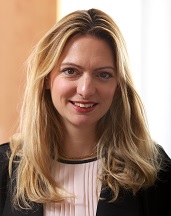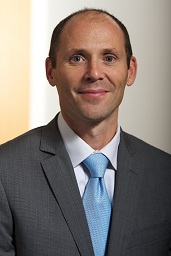
News
Press release
Contribution of Hervé Borensztejn, director of HR Pole of Karistem,
To the collective work entitled “Et la confiance, bordel?” (And what a mess trust is)
Paris, 28 August 2014. Hervé Borensztejn, director of the HR Division of Karistem, is one of the contributors to “Et la confiance, bordel?”, directed by the Montaigne Institute and the Financi’Elles network.

Stress, absenteeism, burnout, and disengagement of managers: what has happened in business for 30 years? Underpinning it all is a trust deficit. There is a crucial issue, even beyond the well-being of everyone. This lack of confidence dramatically harms business efficiency and competitiveness.
This book explores the roots of this “French disease” that is distrust, its various configurations in the company and its practical impact on its operation. Most importantly, it provides keys to rethink our living together, management transformation and social dialogue in search of unifying projects, overhauling the school system to the integration of new generations.
Crossing the perspectives of some thirty authors* – sociologists, economists, psychiatrist, business, HR, organizational consultants, lawyers, trade unionists, etc. “Et la confiance, bordel? ” offers a new relationship to work, another mode that asks everyone to take the gamble of trust.
“Et la confiance, bordel?”
Faire le pari de la confiance en entreprise
Éditions Eyrolles
278 pages – 20€
*Yann Algan / Fanny Anor/ Emmanuelle Barbara / Éric Bellion / Marie-Hélène Bensadoun / Jean-Paul Betbèze / Gonzague de Blignières / Laurent Bigorgne / Vincent Bocart / Adèle Bounine / Hervé Borensztejn / Ewa Brandt / Maria Giusepp ina Bruna / Pierre Cahuc / Juliette Decoux / Odile Desforges / François Dupuy / Camille Dupuy-Olléon / Delphine Ernotte-Cunci / Miguel de Fontenay / Clara Gaymard / Sylvie Gleises / Edouard-Malo Henry / Jean Kaspar / Tania Konicheckis / Vanessa Lamorre-Cargill / Jacques Antoine Malarewicz / Valérie Menu / Alexia de Monterno / Arielle Malard de Rothschild / Sophie Vernay / Sylvie Wahl / André Zylberberg
–
Karistem Corporate Consulting briefly.
Karistem Corporate Consulting (KCC) is a consulting firm specializing in strategy, transformation and operational excellence. Since 2004, KCC develops and implements major transformation projects supported by the Exectutive Managament to improve the competitiveness of the heart of business and / or support functions to align the business strategy. KCC’s approach is results-oriented and puts people at the heart of each transformation. KCC is committed (1) the involvement and ownership of the change by the largest number of people and (2) on fast, major and lasting results.
www.karistem-consulting.com
The Montaigne Institute briefly
The Montaigne Institute is an independent think tank. Its mission is to develop concrete proposals in the areas of public policy, social cohesion, competitiveness and public finances.
www.institutmontaigne.org
Financi’Elles briefly
Financi’Elles is the federation of networks of women managers in the sector of banking, finance and insurance. Founded in 2010, it brings together networks of twelve companies. The objective of Financi’Elles is to help accelerate the agenda of diversity and improve women’s access to the tops of organizations in the sector of finance.
www.financielles.org
–
Press Contact
Sebastien de Boisfleury
Head of Communications & Marketing
Tel. : 01 44 50 39 12
Mail : sebastien.de-boisfleury@karistem.com









